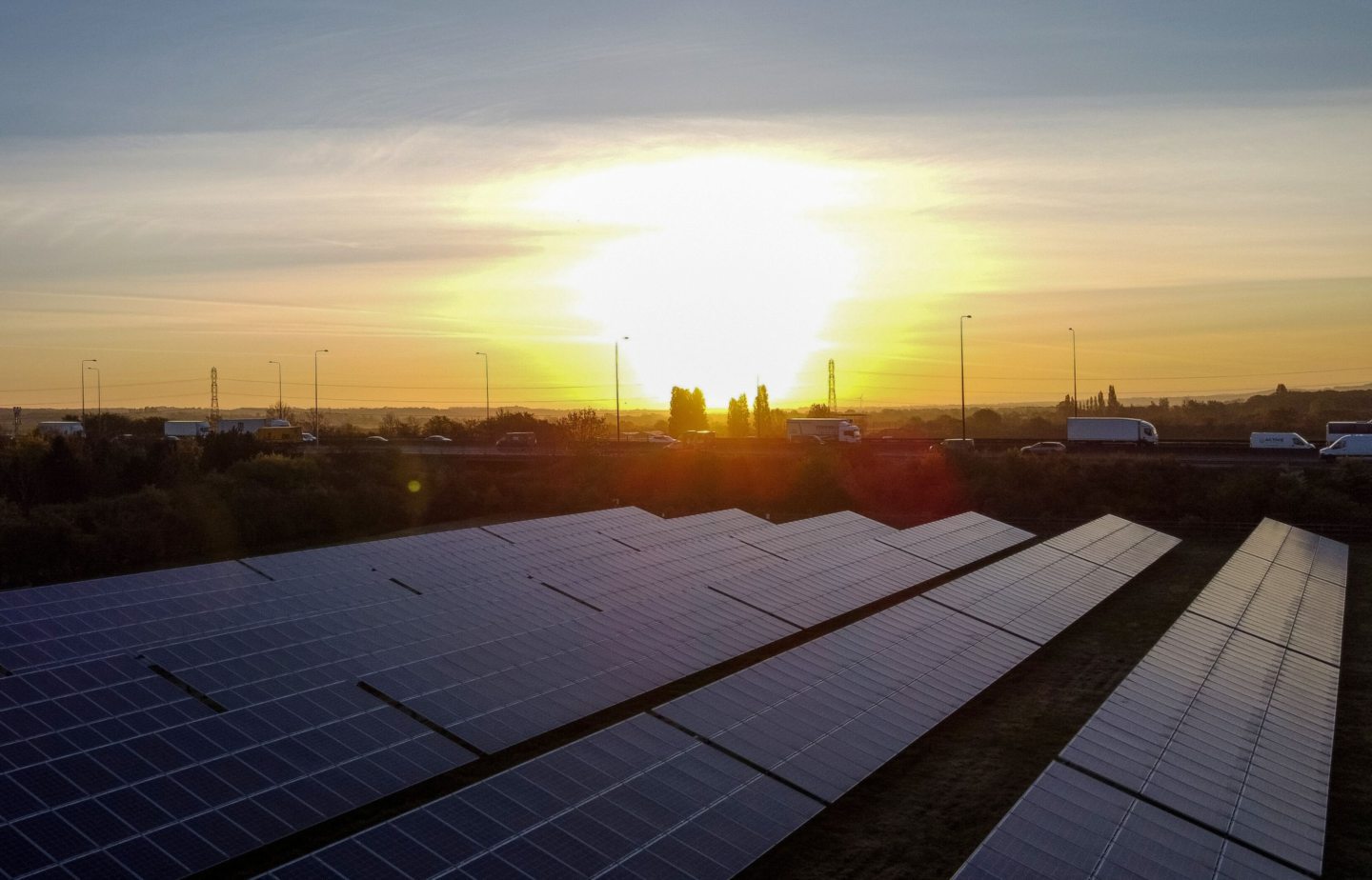How graduate apprenticeships will help fill the UK’s renewable energy skills gap
As the UK accelerates its transition to renewable energy, a critical challenge emerges: the growing skills gap in the sector. The new Labour government is aiming[1] to "make Britain a clean energy superpower," and ambitious targets[2] have been set. With the added energy trilemma of decarbonisation, price, and security, achieving net- zero has been thrown back into sharp focus once more.
The need for a skilled workforce[3] has never been more pressing. One of the areas in which all the UK's administrations must work together is the development of an effective programme to fill employee gaps within the renewable energy industry. This is a paramount step in reaching Scotland's 2045 and the wider UK's 2050 net-zero carbon-emission targets while keeping bills as low as possible for households and businesses.
Green skills challenge
Recent analysis[4] by PricewaterhouseCoopers (PwC) highlights the magnitude of this issue.
The UK needs to find an additional 400,000 workers for the renewable energy industry to meet its net-zero pledge.
 (C) Supplied by Heriot-Watt UniversiProfessor Gill Murray, Deputy Principal for Enterprise and Business at Heriot-Watt University in Edinburgh.
(C) Supplied by Heriot-Watt UniversiProfessor Gill Murray, Deputy Principal for Enterprise and Business at Heriot-Watt University in Edinburgh.
While around 216,000 workers could potentially transition from the oil and gas sector, this still leaves a shortfall of approximately 200,000 workers who need to be recruited and trained. The challenge is not unique to the UK. The International Renewable Energy Agency (Irena[5]) reported that global renewable energy jobs soared to 13.7 million in 2022, nearly doubling[6] in the past decade.
This global growth intensifies competition for talent, making it crucial for the UK to develop its own skilled workforce. The offshore wind sector, a cornerstone of the UK's renewable energy strategy, faces its own acute skills shortage. The Global Wind Organisation (GWO) and Global Wind Energy Council (GWEC) project a need for nearly 600,000 technicians over the next five years[7], with more than 240,000 being new recruits to the industry.
These figures underscore the urgent need for innovative solutions to rapidly develop a skilled workforce capable of delivering on the UK's ambitious renewable energy targets.
Graduate Apprenticeships: A powerful solution
While there are a multitude of learning and upskilling pathways available to employers and to the energy sector at large, some are more easily accessible, and transferable, than others. Graduate Apprenticeships (GAs) offer a compelling answer to this challenge. These innovative programmes combine work-based and academic learning, creating degree-qualified employees with skills tailored to industry needs.
 (C) Image: GettyImagesA worker on an offshore wind turbine.
(C) Image: GettyImagesA worker on an offshore wind turbine.
GAs are specifically designed to address critical skills gaps such as those faced by the renewable energy sector.
They also allow employers to work directly with universities to customise the learning experience, ensuring that apprentices develop the exact skills and knowledge required by the industry.
Energy Sector
Heriot-Watt University, a pioneer in GAs since their introduction in 2017, has been at the forefront of this initiative. We've successfully helped businesses including EDF Energy, Scottish Power Energy Networks, Viridor Energy and THREE60 Energy, train existing staff and attract new talent. This has been across various disciplines crucial to the energy sector including engineering, construction, management, and data science[8].
 (C) Supplied by TotalEnergiesWind and solar energy.
(C) Supplied by TotalEnergiesWind and solar energy.
Our research led focus is an added advantage for students.
Heriot-Watt's Global Research Institutes, such as the net zero focused iNetZ+[9], and The Lyell Centre[10], harnessing and protecting natural land and sea assets, ensure that teaching is infused with cutting-edge research[11], providing apprentices with the latest insights and technologies. This not only enhances learning but also empowers students to contribute to pioneering solutions in the energy sector. Our global presence, with campuses in Dubai and Malaysia as well as Edinburgh, allows us to bring international perspectives and real-world insights to our GA programmes, particularly valuable in the rapidly evolving global energy landscape.
Benefits Beyond Skills Development
The advantages of GAs extend beyond addressing immediate skills shortages.
They play a crucial role in facilitating the transition of workers from traditional energy sectors to renewable energy. Degrees like these also enable more women to enter the sector, naturally bringing in a more balanced and diverse workforce. Encouragingly, the solar energy sector is already showing a higher representation of women compared to other energy sectors.
 (C) BloombergPhotovoltaic (PV) solar panels at the Cranham Golf Course PV Plant near the M25 motorway in Cranham, UK, on Wednesday, May 3, 2023.
(C) BloombergPhotovoltaic (PV) solar panels at the Cranham Golf Course PV Plant near the M25 motorway in Cranham, UK, on Wednesday, May 3, 2023.
GAs are additionally shown to support regional economic development, particularly in areas with a strong heritage in oil and gas, such as North-east Scotland.
All of these factors and more, ensure that the UK remains competitive in the race to decarbonise economies.
Political context and future outlook
As we look towards the next five years, the UK's new labour government has pledged to "double onshore wind, triple solar power, and quadruple offshore wind by 2030" as part of their Green Prosperity Plan. They've also proposed a British Jobs Bonus to incentivise firms offering good jobs and building manufacturing supply chains in key areas. As it stands, this means that the government needs to deliver 50 GW of offshore wind by 2030, with 5GW expected to come from floating wind.
While achieving this goal will result in a significant increase in the current capacity, to meet this target, the UK must build another 2,600 wind turbines costing GBP48 billion by 2030. For added context, that means building more than one offshore wind turbine each day to meet these targets. The UK stands at a crucial juncture in its energy transition.
By fostering close collaboration between industry, academia, and government, we can build the skilled workforce needed to transform the UK into a true clean energy superpower.
The time to act is now, and the apprentices we train today will be the ones to make this vision a reality.
Professor Gill Murray[12] is Deputy Principal for Enterprise and Business at Heriot-Watt University in Edinburgh.
Recommended for you

UK investment needed in Asia's offshore wind supply chain
[13]References
- ^ aiming (www.energyvoice.com)
- ^ ambitious targets (labour.org.uk)
- ^ skilled workforce (www.energyvoice.com)
- ^ analysis (www.pwc.co.uk)
- ^ Irena (www.irena.org)
- ^ nearly doubling (www.irena.org)
- ^ over the next five years (gwec.net)
- ^ data science (www.energyvoice.com)
- ^ iNetZ+ (www.hw.ac.uk)
- ^ The Lyell Centre (www.lyellcentre.ac.uk)
- ^ cutting-edge research (www.energyvoice.com)
- ^ Professor Gill Murray (www.hw.ac.uk)
- ^ UK investment needed in Asia's offshore wind supply chain (www.energyvoice.com)